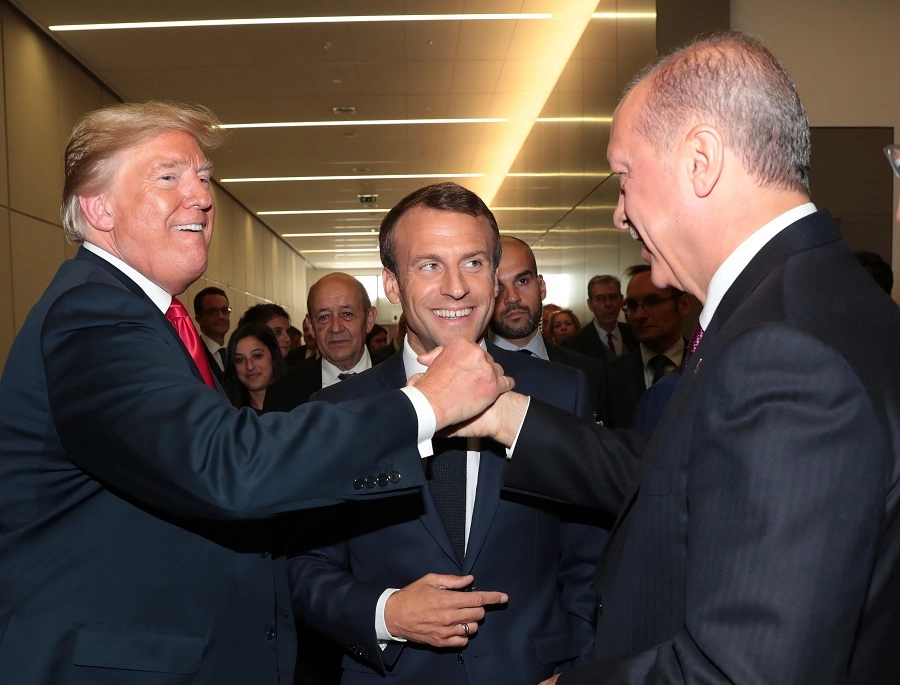What role can Turkey play in mediating global conflicts? Why is President Recep Tayyip Erdogan reaching out to Vladimir Putin and Donald Trump? How might these high-stakes diplomatic efforts shape international relations? These questions are at the heart of Turkey's latest push to facilitate peace talks between two of the world's most influential leaders.
The Context: Turkey's Growing Diplomatic Influence
Turkey, under President Erdogan's leadership, has increasingly positioned itself as a mediator in global conflicts. From the Black Sea grain deal to negotiations in Syria, Ankara has demonstrated its ability to navigate complex geopolitical landscapes. Erdogan's recent statement about potentially calling Putin and Trump to push for peace talks underscores Turkey's ambition to play a pivotal role in international diplomacy.
A real-world example of Turkey's mediation success is the 2022 grain corridor agreement between Russia and Ukraine, which helped alleviate global food shortages. This achievement showcased Ankara's unique position as a NATO member maintaining working relations with Moscow.
Why Putin and Trump? The Strategic Rationale
Erdogan's focus on these two leaders isn't coincidental. With Putin, Turkey shares a complex relationship balancing economic cooperation and geopolitical rivalry. With Trump, Erdogan developed a personal rapport during the latter's presidency. The potential return of Trump to the White House makes this outreach particularly timely.
Practical application of this strategy can be seen in how Turkey has previously leveraged its relationships. During the 2019 Syria crisis, Trump's decision to withdraw U.S. troops followed direct communication with Erdogan, demonstrating how personal diplomacy can yield tangible results.
The Challenges of Mediating Between Superpowers
Brokering peace between Russia and the West presents numerous challenges. The Ukraine war has created deep divisions, sanctions have reshaped global trade, and mutual distrust runs high. Turkey must navigate these minefields while maintaining its own strategic interests.
A relevant case study is Finland and Sweden's NATO accession. Turkey initially blocked their membership before securing concessions, showing how Ankara uses its leverage in multilateral forums.
Historical Precedents of Turkish Mediation
Turkey has a history of successful mediation efforts beyond the Russia-Ukraine grain deal. In 2020, it brokered a ceasefire between Azerbaijan and Armenia. These successes stem from Turkey's unique geopolitical position straddling Europe and Asia, its military strength, and Erdogan's assertive foreign policy.
The 2016 reconciliation with Israel after six years of strained relations demonstrates Turkey's capacity for diplomatic maneuvering even in highly sensitive regional conflicts.
Potential Outcomes and Global Implications
Successful peace talks could reshape global alliances, ease economic pressures from sanctions, and potentially create new security architectures. Conversely, failure might strain Turkey's relations with both sides. The stakes are particularly high as the world faces multiple simultaneous crises.
The recent normalization between Saudi Arabia and Iran, mediated by China, shows how unexpected diplomatic breakthroughs can occur even in longstanding conflicts.
Conclusion: Turkey's Moment on the World Stage
Erdogan's proposed initiative represents more than just another diplomatic effort - it's a test of Turkey's capacity to shape 21st century geopolitics. Whether through direct peace talks or confidence-building measures, Ankara's mediation could have far-reaching consequences for international security and the global balance of power.






